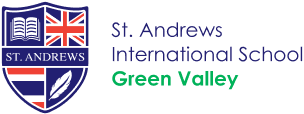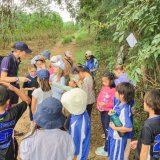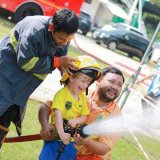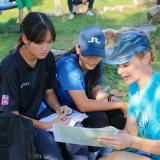The IB Learner Profile isn’t just a list of ideals, it’s a core part of what makes the International Baccalaureate (IB) curriculum unique. Designed to help students develop both academic and life skills, the IB learner profile plays a powerful role in shaping confident, capable individuals. But how does this actually help students in Thailand? And how does the IB learner prepare for Thai universities in a way that sets them apart? Whether your child plans to stay in Thailand for university or explore global options, understanding how the IB learner profile supports long-term success is key.
- IB learner profile builds more than academics: It shapes mindset, character, and essential skills like independence, critical thinking, and communication.
- IB learners thrive in Thai university settings: Their research abilities, adaptability, and self-management help them stand out in more flexible, modern learning environments.
- St. Andrews Green Valley brings the profile to life: Through real-world projects, personalised guidance, and a supportive culture, students grow into capable, confident learners.
What Is the IB Learner Profile?
The IB learner profile is a set of 10 attributes that reflect the values of the IB curriculum. These aren’t just buzzwords, they’re actively integrated into how students learn and grow. The 10 attributes are inquirers, knowledgeable, thinkers, communicators, principled, open-minded, caring, risk-takers, balanced, and reflective.
Together, they form a framework for developing not just good students, but thoughtful, ethical, and capable human beings. The IB learner is encouraged to ask questions, reflect on their actions, and understand their role in the wider world.
Why the IB Learner Profile Matters for University Preparation
University success isn’t just about academics—it’s about mindset, independence, and the ability to adapt to new challenges. The IB learner profile helps build these foundations early.
Importance skills for University Preparation
IB learners are taught exactly the kinds of skills needed at university level, especially in Thai universities, where students are often expected to take more initiative and manage their own learning. These skills are:
- Think critically and solve problems
- Manage their own time and responsibilities
- Communicate clearly and respectfully
- Approach new ideas with confidence and curiosity
- Work collaboratively and ethically
How IB Learners Stand Out in Thai Universities
While many Thai students come from traditional systems focused on memorisation and exams, IB learners often enter university with a different set of strengths. Here’s how the IB learner prepares for Thai universities in a way that makes a real difference:
- Research and Presentation Skills: IB students are used to writing essays, conducting research, and presenting ideas—skills that many Thai university courses now emphasise.
- Confidence in Independent Learning: From extended essays to CAS projects, IB students know how to plan, manage time, and work through complex tasks without constant supervision.
- Comfort with Critical Thinking: Where rote learning may dominate in some systems, IB learners are comfortable asking questions, evaluating information, and forming their own ideas.
- Adaptability and Open-Mindedness: Being part of an international learning community gives IB students the tools to work with diverse peers, handle change, and respect different perspectives—important in Thailand’s increasingly globalised higher education landscape.
- Strong Communication and Collaboration: Whether in English or Thai, IB learners know how to express themselves clearly and work effectively in group settings—an advantage in seminars, team projects, and presentations.
IB Learner Profile vs Traditional Thai Education
While both systems offer valuable experiences, there are key differences in how students are prepared for university life:Learning Approach
- IB Learners: Encouraged to ask questions, explore ideas, and think critically
- Thai Education: Focuses on memorisation, repetition, and exam preparation
Learning Style
- IB Learners: Develop independent, self-directed study habits
- Thai Education: Follows a teacher-led, structured classroom format
Assessment Methods
- IB Learners: Assessed through essays, projects, and reflective tasks
- Thai Education: Relies mostly on standardised tests and factual recall
Global Outlook
- IB Learners: Exposed to international perspectives and real-world applications
- Thai Education: Curriculum tends to focus on national standards and local context
How St. Andrews Green Valley Develops the IB Learner Profile
The learner profile is central to the IB experience, but how it takes shape depends on how a school brings it to life. At Green Valley, students have plenty of opportunities, both in and out of the classroom, to practise these qualities in ways that feel real and relevant. Here is how we bring it to practice:.
Integrated Learning Experiences
At Green Valley, subjects aren’t just taught—they’re explored. Students learn through enquiry, discussion, and real-world context. This helps them think independently and make meaningful connections across what they study.
Personal Growth through CAS
Creativity, Activity, Service (CAS) helps students grow as people—not just learners. They build leadership, compassion, and resilience through real-world projects and experiences.
Supportive University Guidance
Whether applying to Thai universities or international programmes, students receive personalised support from staff who understand how the IB learner profile translates to real-world readiness.
The International Baccalaureate (IB) is a globally recognised curriculum that develops students into curious, capable, and independent learners. At its heart is the IB learner profile, a set of qualities like open-mindedness, critical thinking, and self-management that shape how students approach learning.
These traits are especially valuable in Thai universities, where students are expected to adapt to more flexible, research-driven learning environments. IB learners often stand out for their ability to ask thoughtful questions, work well in teams, and express their ideas with clarity—both in Thai and English. They’re comfortable managing their time, leading projects, and thinking beyond memorised content.
At St. Andrews Green Valley, we embed the learner profile into every part of the school experience. With supportive teachers and a balanced approach, students develop the skills and mindset they need not just to succeed—but to thrive—in Thai university settings and beyond.






